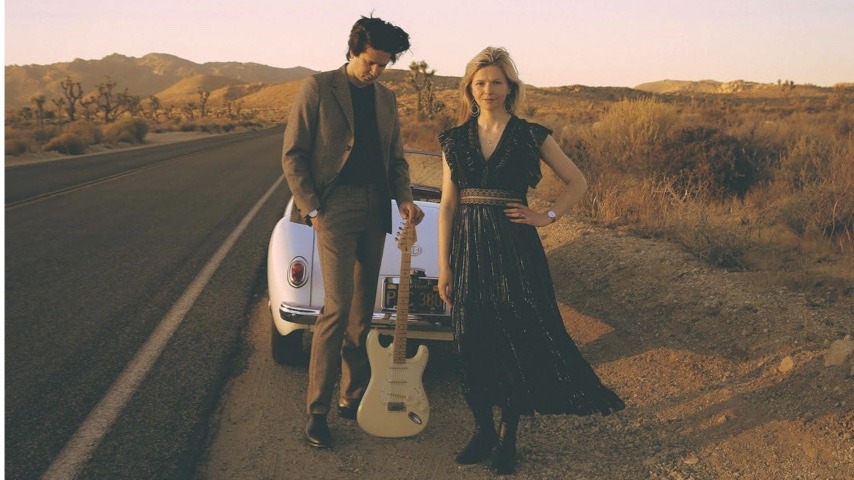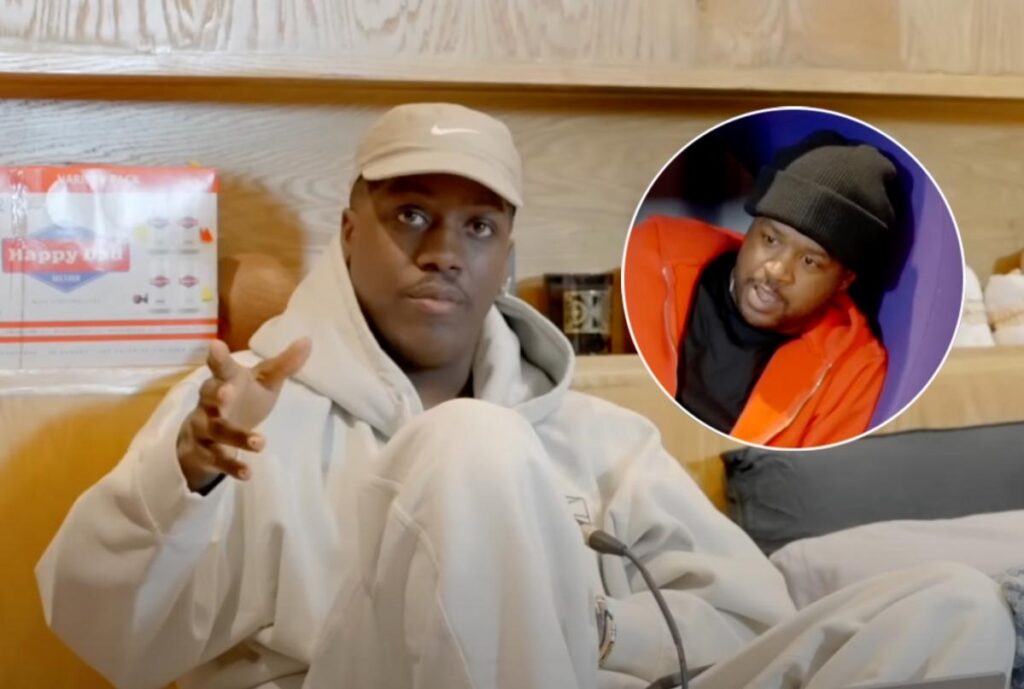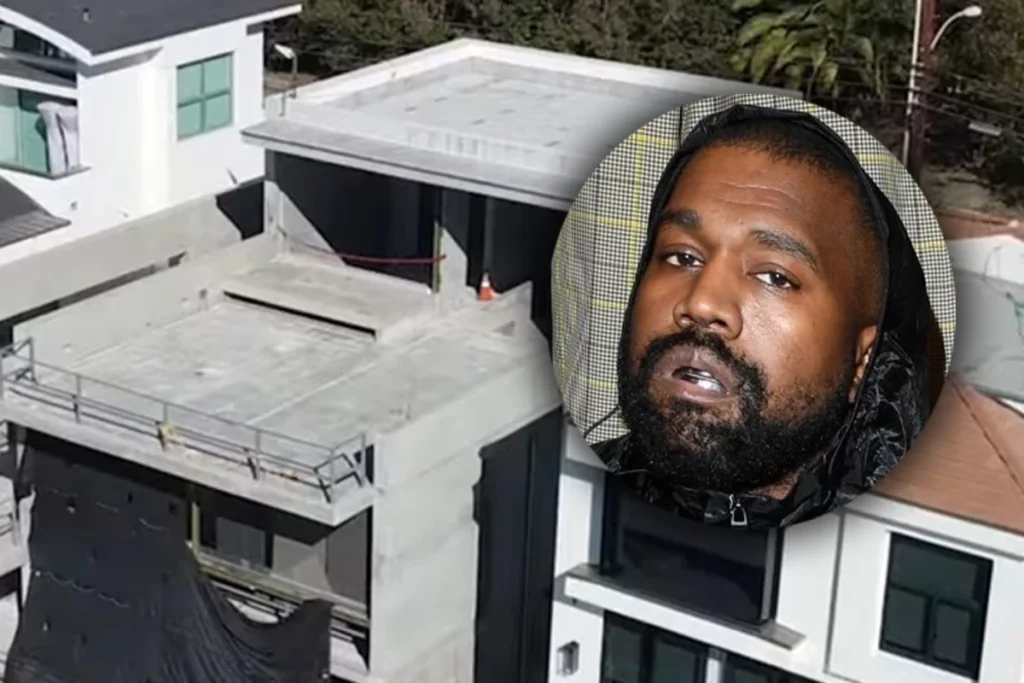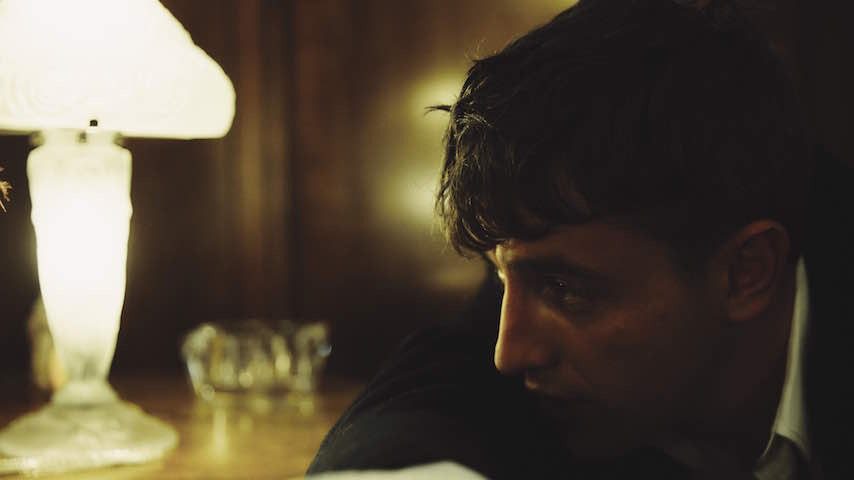It was a tall artistic order for German film director Gerd Oswald back in 1956—transforming Ira Levin’s pulp-lurid 1953 novel A Kiss Before Dying into a Cinemascope-splashy motion picture that managed to capture the pulp-fiction darkness of the original murderous plot. He would effectively be upgrading a traditionally black-and-white genre—film noir—into the less-shadowy medium of color, while still maintaining the latent menace of its young-star protagonist, Robert Wagner, as he makes some cold, creepy decisions about his pregnant college girlfriend, played as a trusting, wide-eyed naif by Joanne Woodward. But he managed to pull it off, and panoramic ethereal duo Still Corners applaud his fabled feat on its new fifth album, The Last Exit, in the sinister track “A Kiss Before Dying,” which swaths vocalist Tessa Murray in the smoky, spaghetti-Western guitar plumes of her multi-instrumentalist partner, Greg Hughes. “It’s hard to do film noir in color,” Hughes allows. “But that’s definitely what we’re trying to do with our music, and I really like that idea. Plus, I really like Robert Wagner—he’s super cool.”
Fittingly, the rest of The Last Exit has a surreal cinematic feel, be it the flickering imagery in “Bad Town,” “Mystery Road” and “It’s Voodoo” or the forlorn spectral sonics of current single “White Sands,” the tale of a phantom desert hitchhiker straight out of The Twilight Zone. Most artists wouldn’t invite the wraith to hop in, but Still Corners throws its car doors open wide for just such otherworldly, potentially dangerous guests, even if they do have a prosthetic hook for a hand. And after five velvet-textured albums, the British-born Murray and the Austin-bred Hughes have got their unusual approach down pat now. Even their serendipitous origin story is script-worthy, and slightly reminiscent of the what-if classic Sliding Doors. Phoning from their new home in Woodstock, NY, they recently checked in to discuss their alchemical process.
Paste: So you’re in Woodstock now? Tons of musicians live there—Sleigh Bells, The Bobby Lees, classic songwriters like Jules Shear.
Tessa Murray: Everybody is supposedly here, but we don’t know any of them personally. But then again, we haven’t been here that long. We were here for a bit, but then we were out on tour a lot, and then COVID-19 happened, so now we’re stuck here with four friends and no one else. We haven’t met anyone new. And we also have black bears running around outside our house.
Paste: Why Woodstock?
Murray: So we moved to Austin for a couple of years, because we were living in the UK and we thought about coming over here for a bit. And I said, “We need to go somewhere that’s really warm, because that’s different than what I’m used to.” So we were in Austin, but then we decided that we quite like the cold sometimes, too, so we came somewhere where it gets really cold. So we moved here in early 2018, and we just fell in love with the area. And even though we don’t know any local musicians yet, Woodstock is so steeped in music history, you can feel it almost in your bones, everything that has happened here previously. And that’s just a good backdrop for us at the moment. But we’ll probably move again at some point, because that’s what we seem to do.
Paste: So recount, if you will, the fable of how you first met. All because you both got on the wrong London train? Which tube line was it?
Murray: It was actually an overground train, and I know the day—it was a Thursday, because I was on my way to choir practice. And I really think the sign was wrong. It said it was going to stop at London Bridge, but it didn’t.
Greg Hughes: That’s what my sign said, too.
Murray: So that’s how we both ended up on the wrong train. And then at the platform at the first stop, which was in southwest London, all of the other people that got off hadn’t been on the wrong train, so they basically all left the station and left just us standing on the platform. And it was January, and it was a bit foggy and a bit dark, but I just asked him, ‘Oh—did you get on the wrong train, too?’ And that’s how we got to talking.
Hughes: It was weird. I’m sure it’s happened before, where there’s been a mixup in train schedules. But obviously, this was just fortuitous, because I said, ‘Where are you off to?’ And she said, ‘Choir practice.’ And I was desperately looking for a singer to work on some music with. So I said, ‘I’m in this band, but I’m doing this project—do you maybe wanna try some singing on it sometime?’ And she was like, ‘Oh, yeah! That sounds cool!’ And the rest is rock ’n’ roll history. But these days even talking to a stranger that you meet like that seems strange.
Murray: I feel like now it might not have happened because everybody has smartphones. And I feel like our already existing inability to socially interact is only getting exaggerated by last year’s events, until no one’s gonna be able to communicate anymore, at all.
Hughes: Sometimes, I’ll meet older people, like in their 70s, and they’re actually far more easy to speak to, and they’re usually a lot more jovial, in a lot of ways. So I guess we’ll just have to go to the bars with our grandparents from now on, I guess.
Paste: Is there a pub at that train station that you return to annually?
Murray: No. But sometimes we’ll be driving around London, on tour or something, and we’ll see a roundabout with an exit to Kidbrooke. And I’m always like, “Yes! That’s where we met!” But it’s, uhh, not the type of place that you’ll make specific trips for.
Hughes: Good ol’ Kidbrooke. But I waited a week to call her. I didn’t want to be pushy. I thought, “Let’s have a cool, organic, chilled-out thing and just see what happens.” And also, we didn’t even know if this was something that we really wanted to do. But after seven months of writing and doing demos, a friend of mine heard the music and said, “Man—this is really good! You should really pursue this!” And we were like, “Yeah—this is good!” Because sometimes all it takes is somebody else to tell you that what you’ve done actually is good, because you can be quite critical of yourself, I think.
Paste: So you both obviously love film. Have you been watching tons of Hulu and Netflix movies all night during lockdown?
Hughes: Yeah.
Murray: And all day.
Paste: So wide-screening film noir into glorious color was a central aesthetic concept?
Hughes: And also a return to the myth of the early American road movies and stuff like that, blended with the whole noir vibe, as well. Road movies like Duel and Five Easy Pieces. But that was a bigger thing in the ’70s and the ’80s compared to what they’re doing now. And fantasy was such a strong theme then, too. ’80s films were heavy on fantasy, like Gremlins, Labyrinth, Goonies, Big Trouble in Little China. So we were trying to apply that fantasy-mythology thing to our music, if that makes any sense.
Murray: The advantage of 2020 has been that there was so much down time that you could really embrace other new films, like Eurovision Song Contest—The Story of Fire Saga. And we’ve also been looking back and watching some classics, like Anatomy of a Murder and Sorry, Wrong Number.
Hughes: And Out of the Past. That one is really great, and Robert Mitchum is really great in it. As film lovers, we really got in to checking what the Criterion Collection has put together on their website. It’s amazing. I’m like a kid in a candy shop.
Paste: Daniel Kessler from Interpol always wakes up, puts on a pot of strong coffee, and starts watching old films while strumming his guitar. That’s how song ideas occur to him.
Hughes: Interesting. We don’t write like that, but we do write everything before noon, it seems like. The hours between 10 a.m. and noon are sort of where things come together for us, actually.
Murray: There’s that prime time in the morning, and then there’s also a good time in the early evening, at which point you’re starting to feel a bit tired. But you can return to a song and come up with more ideas. So now we go to bed at 9:30, so by 7:00 it’s nearly time for bed already. But that’s when ideas will come to us. So for us, seven is the new eleven.
Paste: But for The Last Exit, you decided to scrap some old material and add three new tracks—“Crying,” “Static,” and “Till We Meet Again”—post-pandemic?
Murray: Yeah. We thought we’d finished it. We had it all mastered, but when everything stopped, we were like, “Oh—maybe it’s not right.” And I guess you have surges of creativity sometimes, and songs just come out really quickly. And that seemed to happen for us. There was so much going on in the world, and obviously, you’re a spectator to a certain extent—you’re looking at the news, looking at what people are writing on social media. It’s a whole different paradigm, and I think that came out subconsciously in those songs.
Hughes: And there’s also an element of—if you’ve seen To Live and Die in L.A.—Willem Dafoe, as soon as he finishes a painting, he just takes it outside and lights it on fire, so it’s around for only a minute. So when you’re writing something, there is an element of just not liking it anymore, like, “This is garbage! I just wanna delete it.” So that’s what we did. We deleted four or five.
Murray: And even the ones we kept, we changed. Some things were re-tracked or given whole new arrangements.
Paste: And your guitar style is heavily influenced by the late Jimmy Wilsey and the spooky sound he perfected on early Chris Isaak albums, right?
Hughes: Wilsey came up with a unique mix of guitar influences and made it his own, a sort of windswept, little-haunted-house-on-the-prairie vibe that’s both primitive and deep in its beauty. Like him, I also grew up on The Shadows and Billy Strange, and those guys were my first exposure to that clean-toned guitar sound that dominates Still Corners music now. Billy Strange’s version of “House of the Rising Sun” had a big impact on me as a kid.
Paste: David Lynch always utilized Isaak and Wilsey’s sound to good effect.
Hughes: David Lynch’s visual style and the way he weaves music into his work was a big influence on us, too.
Paste: And Still Corners isn’t above throwing in some sound effects to heighten a song’s mood.
Hughes: When you’re listening to us, we want you to be fully immersed in the little world we’re creating for you. On our new song “Bad Town,” there’s a coyote recording we made out in Tucson, Arizona, and on “It’s Voodoo,” it’s crickets, and on “White Sands,” it’s thunder. I’m always making little nature recordings on my hand-held recorder, and I love thunder recordings—I’m always trying to capture the best thunder.
Paste: How do you know when each panoramic scene/song is complete?
Hughes: The song tells you that. It says, “I’m done.” The more you write, the more you learn to stay out of the way of the song. It will guide you. You just have to learn to let go and let it happen.
Paste: Have you ever done an actual movie soundtrack?
Hughes: No, but we’d love to! We’ve had our music in film, but we’d love to do a full soundtrack. So if Jim Jarmusch is out there and he’s reading this? Hey—we’re available!




